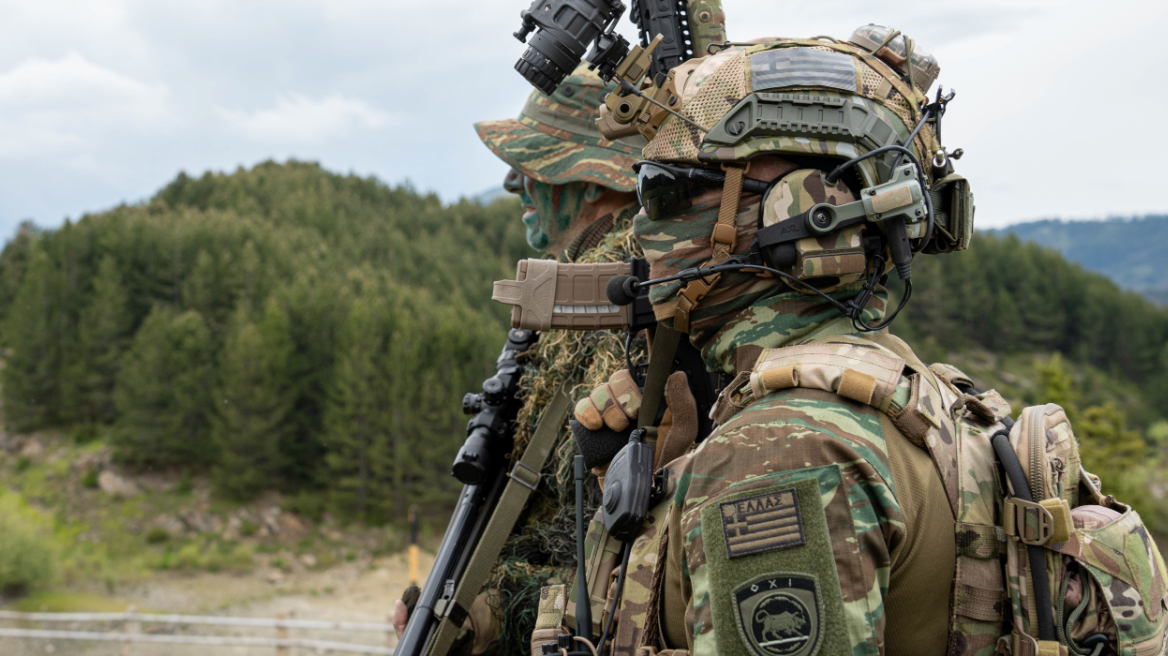While their main focus is on property crimes (theft, burglaries, robberies), these gangs also launder their money by establishing businesses and purchasing real estate. It is becoming more common for them to bribe public officials.
The disproportionate involvement of Roma in criminal activities, particularly property-related crimes, compared to their percentage in the general population, has prompted the police to both analyze their organizational structure and alter their operational strategies to address these groups. Recently, Citizen Protection Minister Michalis Chrisochoidis stated, “We are at a point where we aim to penetrate the core of organized crime involving robberies, thefts, and fraud. Western Attica is celebrating recent operations, and we will be present in Roma settlements.”
This analysis has also led to legislative initiatives. As many offenders, while being on conditional release for certain crimes, continue to commit new offenses, mandatory pre-trial detention will be imposed on those who commit felonies, and it will be up to the court’s discretion for misdemeanors. Additionally, a new regulation is being introduced whereby victim compensation during the criminal settlement process will serve as a mitigating factor for the accused, but not as grounds for dismissing charges.
In recent operations conducted in Roma camps known to be hubs of criminal activity, significant discoveries were made, including bullets, weapons, and 747 gold sovereigns, whose origin could not be justified. EL.AS. is also targeting metal recycling businesses to identify those involved in supplying or receiving materials from infrastructure dismantling, such as railway tracks and electrical grid thefts, as well as from construction sites.
The activity of organized Roma gangs appears to have become more sophisticated, as their members manage to exploit legal loopholes to their advantage and stay under the radar of authorities, minimizing consequences when they are caught. For instance, they know that if they are arrested with stolen goods in a vehicle they own, the vehicle will be confiscated. Therefore, they ensure that the car is rented by someone not directly involved in their criminal activities, and they then sublease it. The rental car is simply returned to the company. Alternatively, they use vehicles owned by other family members, which, even if confiscated, will often be returned to them in court.
Police have found that Roma gang members are well-versed in investigative procedures. They quickly offload stolen goods to fences, ridding themselves of any items that could link them to specific thefts, burglaries, or robberies. As a result, during raids in their camps, it is rare to find stolen goods even when arrests are made.
The members of these organized Roma gangs prefer cash, avoid banks, tax returns, and electronic money, and use cash exclusively in their transactions.
Recruitment in Camps
A key characteristic of these gangs is recruiting members from a very young age, often even minors. Some individuals have been arrested and brought to justice dozens of times for burglaries and thefts using the same methods. However, the key to their freedom and continued criminal activity is the law: legal provisions favor minors or those in their late teens. Additionally, being Greek citizens makes them less of a flight risk. As a result, they are often not remanded in custody or are released easily.
Most individuals arrested for property crimes are released by the courts with the requirement to regularly report to their local police department. This measure has been so overused that one foreign national is required to report to the Agios Panteleimonas Police Department 30 times a month for different cases. Currently, 2,300 individuals in Agios Panteleimonas are required to report regularly, of which around 2,000 are foreigners. Of these, 450 must report between two and six times a month.
Similarly, in Zefyri, 366 individuals must report regularly, 349 of whom are Roma. At least 20 of them must report more than three times a month for crimes such as robbery, theft, and fraud, while one individual must report three times for felonies such as rape, drugs, weapons violations, and fraud.
This requirement to report overwhelms the police, often making it practically impossible to enforce. This has led to changes in the law, where those who commit new felonies while on conditional release will now face mandatory pre-trial detention. For misdemeanors, it will be up to the discretion of judges to decide on pre-trial detention.
Roma Gangs and Criminal Networks
According to the latest report on serious and organized crime in Greece, 167 criminal groups systematically involved in property crimes were dismantled in 2022. Of these, 67% were domestic and homogeneous. Among domestic groups, 77% were Roma gangs. Most of these members had prior criminal records before being arrested as part of organized groups.
Analysts have found that Roma gang members who commit property crimes, both men and women, are generally young and often come from the same family. Additionally, groups from Athens frequently collaborate with those from provincial towns, with members moving from one region to another. Recruitment takes place in camps, where supervision by police or state services is minimal.
The gangs typically use the same methods for burglaries, such as climbing balconies, breaking doors, windows, or sliding doors, and once inside, they ransack the place looking for valuables while avoiding leaving fingerprints.
In many cases, they use distraction techniques, primarily targeting elderly victims by posing as public service employees, technicians, tax officials, or street vendors.
A significant aspect of their activities includes metal theft and stealing vehicle catalytic converters. Most of these operations are based in areas with large Roma camps, such as Western Attica, Thessaloniki, Thessaly, the Peloponnese, and Central Greece. Knowing that the police might track their movements or monitor their phone calls, they use untraceable “Pakistani” phones, often shared among gang members, making it hard to identify the user. They also speak exclusively in Roma dialects on these phones, further complicating investigations. Often, they monitor police communications with radios tuned to law enforcement frequencies to anticipate police movements and ensure a safe escape.
Recently, it has become evident that almost all Roma criminal cases involve some form of plea bargaining. Before even giving their testimony, gang members often contact their victims, offering compensation in exchange for withdrawing charges, thereby halting the criminal proceedings. The compensation amounts are typically small, but victims often accept the deal out of fear. They sign simple declarations, which the defense lawyers present to the magistrates, who frequently accept them, leading to the release of the accused under restrictive conditions.
Because of these practices, a legislative amendment is being proposed to tighten the rules. The law allowing a defendant to be acquitted if they fully compensate the victim in cases of theft or burglary (by returning stolen goods or compensating the victim financially) will be revised. Compensation will now be recognized only as a mitigating factor, not as grounds for acquittal.
Usury
One particularly interesting observation by organized crime analysts is that in recent years, the criminal activities of certain Roma groups have expanded into the realm of usury, which incorporates elements and rules from Roma customs and is exclusively directed toward members of their community.
“…Those arrested often have a criminal history…”
The finding that organized Roma gangs are increasingly involved in property crimes (thefts, burglaries, robberies) annually recorded in our country led police analysts to thoroughly study how these groups are structured, organized, and operate. The aim was to better understand them and generate proposals for operational redesigns by law enforcement to curtail their activities. These conclusions were drawn from an analysis of 167 criminal groups dismantled in 2022 for property crimes.
Of these 167 criminal groups:
- 111 consisted exclusively of Greeks, and 85 of these involved only Roma members.
- Among the robbery groups, 59% (about 6 in 10) were Greek, and of those, 49% involved Roma members.
- According to the police, the participation of Roma in criminal activities is disproportionately high compared to their percentage in the overall population.
Police Analysis
In their analysis, the police note: One of the primary criminal activities in our country is property crimes. In recent years, Roma group involvement in robberies and thefts has skyrocketed. Recent solved cases, available information, and collaboration between various police services have shown that these groups are no longer opportunistic. They have expanded their activities into laundering their criminal proceeds by establishing businesses, buying real estate, and frequently, cases involving Roma show signs of corruption, with public officials being implicated.
According to the 2022 Report on Serious and Organized Crime in Greece (confidential version), 167 criminal groups involved in property crimes were dismantled. Most were domestic (67% of the total) and homogeneous (88%). Additionally, the majority of domestic groups (77%) involved Roma members.
Regarding thefts and burglaries, domestic groups dominate (72%), followed by foreign groups (22%). Most of these groups (91%) were homogeneous. In Greek groups, Roma members were dominant (86% of domestic groups).
In robberies, Greek groups made up 59% of all groups. Roma participation was also significant, with 49% of Greek group members being Roma.
Regarding vehicle theft and trafficking, domestic groups remained dominant (71%), with Roma groups involved in 39%, a significant percentage compared to other property crimes.
1. Members
The members of a criminal organization are one of the most critical factors contributing to its success. Their criminal capabilities or lack thereof can lead the group to success or failure. Loyalty to the organization is a necessary quality.
In Roma criminal groups, members are almost exclusively from the Roma community, primarily young men and women. Often, members are from the same extended family, meaning they share blood ties. Groups from Athens often collaborate with groups from other provincial cities, moving between cities to expand their criminal activities.
Recruitment happens within the settlements where they live, which are difficult for state authorities to supervise and control.
2. Organizational Structure
The organizational structure of modern transnational criminal organizations has evolved significantly from the pyramid structure we once knew. In the case of Roma groups, it often takes the form of a loose network. Even in these cases, one member, typically the most experienced in committing crimes, directs the others, though they are not considered the leader in a strict legal sense.
3. Motivations and Objectives – Tactics and Methods
The main goal of these groups is to maximize their financial gains. Their targets are money, jewelry, valuables, and occasionally small electronic devices.
To describe the tactics of groups operating in Athens, we’ll outline their modus operandi based on investigations conducted by law enforcement.
a/ In burglaries, they climb onto balconies and force open doors, windows, or balcony doors using tools like screwdrivers and crowbars, causing damage. They then enter and ransack the premises, stealing valuables, cash, and jewelry. Sometimes, they enter through unlocked doors or windows. Other members remain outside, often in cars, monitoring the situation and alerting their accomplices to any complications (arrival of residents, police, etc.).
b/ In thefts from homes, they use distraction tactics, often posing as company employees to gain entry and steal money or valuables. Notably, they target the elderly near supermarkets or shops, convince them to get into their vehicles, and accompany them home, where they steal from them.
c/ These groups are also active in stealing metals and vehicle catalytic converters.
d/ Their bases are in areas where they live, such as Western Attica (Zephyri, Liosia, Megara), or in other regions of Greece, such as Thessaloniki, Peloponnese, Central Greece, and Thessaly, where settlements exist.
e/ They use vehicles owned by other family members, rented from companies, or rented from third parties to avoid identification and asset seizure by police in case of arrest.
f/ They use phones registered under false identities, shared by group members to make identification difficult. They communicate in Roma dialects, further complicating police investigations.
g/ They are highly familiar with police investigation procedures.
h/ Immediately after committing crimes, they quickly dispose of stolen goods to fences.
i/ Post-arrest investigations rarely recover stolen items or cash. They avoid using the country’s banking system, keep their earnings in cash, and conduct transactions without receipts or documentation.
j/ Frequently, they possess weapons acquired from unknown sources or stolen during burglaries.
k/ During their activities, they sometimes use radios tuned to police frequencies.
l/ Members often exhibit criminal behavior from a young age and have been arrested numerous times for burglaries and thefts. They exploit the lenient provisions of the Greek justice system regarding minors and the fact that they are domestic, not flight risks, to avoid pretrial detention or to secure early release.
m/ In recent years, their criminal activities have expanded into usury, which follows Roma customs and concerns only Roma. Members, when in need of quick cash, turn to more powerful Roma figures who lend them money at high interest, to be repaid with profits from their crimes.
At the top of the usury pyramid are a few wealthy Roma families, who have expanded into legitimate businesses. This explains the absence of large sums of cash during investigations, as money circulates within these families, which have divided the country into areas of influence.
n/ In most cases involving Roma, they use plea bargaining. They offer victims immediate cash compensation in exchange for withdrawing complaints, thus halting criminal prosecution.
Characteristics of Roma Gangs:
- Members are recruited from settlements.
- They often belong to the same extended family, are young, and include both men and women.
- Their young age, combined with their status as Greek citizens, prevents them from being considered flight risks, allowing them to remain free, even if under conditions.
- They target elderly victims using distraction methods during burglaries.
- They operate from settlements across Greece, with collaborations between groups in different regions.
- They are adept at avoiding the law, using untraceable phones and communicating in Roma dialects.
- They quickly dispose of stolen goods and often use rented vehicles.
- They prefer cash transactions, rarely using banks.
- They launder money by purchasing real estate.
- A usury network operates within settlements, controlled by a few powerful families.
- They frequently engage in plea bargaining, offering compensation to victims in exchange for dropping charges.
Ask me anything
Explore related questions





